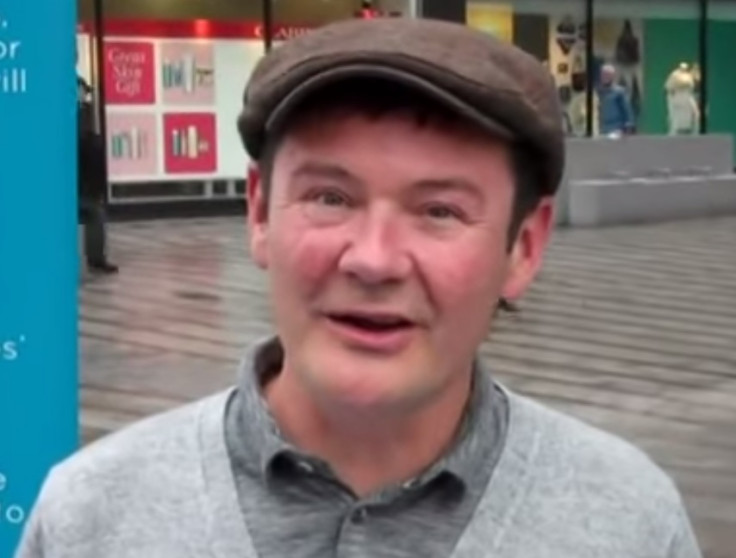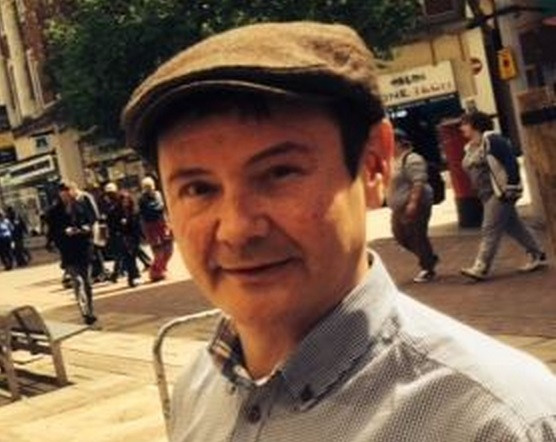Election 2015: Meet Yorkshire First, the thrifty party fighting for the English regions

Richard Carter is a Yorkshireman born and bred. The 49-year old hails from Holmfirth in the West Riding and was, up until mid-2014, a business consultant. That was when he went full time as leader of the Yorkshire First party, which at just a year old is fighting in over a dozen Yorkshire constituencies at the 2015 general election. He talks to IBTimes UK.
So tell us what exactly is Yorkshire First?
Yorkshire First is a regionalist party looking for first rate devolution, similar to Scotland or Wales, for our region.
We basically set up in order to contest the EU elections in 2014 and we'd been discussing it for a year or so beforehand. We thought that we had a different approach to how to make change happen. We felt that a regionalist party was required not just here, but in many other parts of the UK. And we think that the national narrative is actually not doing the regions any favours whatsoever.
Nine out of ten of the poorest areas in northern Europe are in the UK. At the same time, inner London is the richest. That says to us that the UK's not working and it needs fixing.
We are in it for the long-run. We've got no money. We've got people with drive, desire and a passion to make change happen. And that's what we are trying to do.
In the first elections we did last year, we got a higher percentage in our first election than the Greens, Ukip, Plaid Cymru and the SNP. And we spent £604. So we know there's something in this. We actually thought it would get a little bit quieter after the election but unfortunately it's just gone the other way. That's why I made the decision that we needed at least one person doing this full time. Most of us are just ordinary people doing full-time jobs, holding down family, kids, all those kinds of things.
That you have got this far on £604 speaks to the stereotype of Yorkshire thrift.
I asked my dad once - I must have been younger than 10 - what's the difference between us and Scottish people? And I remember looking at him, and he sort of thought about it, and said 'well there's no difference except they're a little bit too free with their brass'. With their money, in other words. Then he grinned, turned around and went away. It took me about 10 years to work out what the hell did he mean by that? Clearly he was saying that we are more careful with money than the Scots and everybody knows that Scots are supposed to be quite tight. But he said it with such pride, which is why I didn't get it.
How many candidates have you got standing?
We've announced 13 so far. One more we're 99% certain of getting over the line on time and we may well have another one as well. So there could be 15. We're quite amazed. When we discussed the EU elections last year, we said if we could get six candidates that would be an incredible result for us after one year. Now we've got 13 so far, maybe 15, and the majority of them are extremely good candidates. We've got an ex-vice president of the EU, Diana Wallis, an ex Liberal Democrat MEP who's standing in one. We've got ex-Conservatives, ex-Labour and ex-Ukip. So we're actually drawing support from right across the political spectrum.
Rather than slice it left-right, we are slicing the cake in a different direction. And that makes it very interesting. I'm amazed how unified as a group we've been able to be. I've never seen such passionate people.
What we have tried to do is go to places where we think there is a good amount of support there or where we think we can influence the results. So if you look at a few key constituencies that Labour needs to win. Colne Valley: there is 1% difference there between Labour and the Conservatives. Based on the last election, 1% is 550 votes. Now I'm pretty convinced that we will get more than 550 votes. I'm pretty convinced that we will get a lot more than 550 votes. The point is we will influence outcomes.
What are your three most important policies or priorities?
Our goal is obviously to get first rate devolution in Yorkshire. What we are trying to do in our manifesto though [...] is do this a little differently. A manifesto should not be a list of promises that we all know that the parties are going to break as soon as they get in. Because those are almost a sort of wishlist of what you would like to do. We've tried to focus on what are the three or four key issues or opportunities for Yorkshire.
So what are they then?
Education, transport and energy. Those are three that are worth mentioning.
Education: we've got the highest levels of child poverty out of any region in the UK. We've got the worst performing results at GCSE level. And we've got the lowest number of good or outstanding schools at early years levels. And no-one is talking about this. Now that for us is a major issue when it's our region that has got all of those. We are underperforming. If we fail our children, we fail not just them, but we fail Yorkshire as well. And the country.

Transport is another one. Some [rail] lines were electrified in the south east 50 years ago. We are still running on trains that you would not believe. I'll give you an example. It takes me 19 minutes to get from Huddersfield to Leeds. I can go to Sheffield, which is roughly the same distance but in a different direction - that one takes one hour and 19 minutes. To go 25 miles. These are the kinds of things we have got. And this is not just about the economy. It's about connecting people and places. HS2 - who wants to get to London ten minutes quicker when we can't get to Leeds within an hour? These things have been decided in London, that suit London, and everything must start and end in London and go there. We just think that decisions around transport should be taken here. Decided here. Designed here. And delivered to timescales and priorities that work for us here first.
Then energy. Yorkshire provides 16% of the UK's electric from a generating point of view. We've got an excellent background in wind farm generation, with Siemens setting up a factory up here. We've got coal. We've got massive amounts of energy strength. From our perspective, what that means is we should be creating Yorkshire as an energy hub. And to do that you've got to align your education, training, investment and transport. If you do that, you will be able to create the high quality jobs as we move to a non-carbon future. And we believe that is something that you can't do with a local authority. It has to be something bigger. Now Yorkshire has got no unified voice. We've got 22 different councils and only one county council that covers the least populous part of the country, which is basically North Yorkshire. So we've basically got no voice, no means of acting as one. And that for us is the problem.
Will Yorkshire one day be free from Westminster's shackles?
Well we don't want independence. I was asked by a 120-year-old debating society to propose the motion 'This house believes that Yorkshire needs to seek independence from the financial and political control of Westminster'. And I looked at this and thought 'oh s**t. How the hell am I going to win that one?'
Then they said Robert Goodwill, who is a government minister from the Department of Transport, he was the one opposing the motion. It was in his constituency in Scarborough. The average age - well I think I'm old and I'm 49, and I was the youngest one there. What really struck me was that we won. We won the debate 41 to 29. Our campaign up to that point had been virtually 100% online social media. It has to be. We're relatively small in number etc etc. So for us, when that occurred and we won that vote, I couldn't believe it actually. That said to me that the older end, as we'd call them up here, are as p****d off as the younger people.
We don't want an independent Yorkshire. We want a United Kingdom that works for all people from all parts and all regions. If we get that then we're convinced that we in Yorkshire can do we
© Copyright IBTimes 2025. All rights reserved.






















